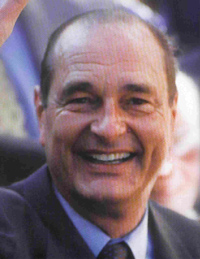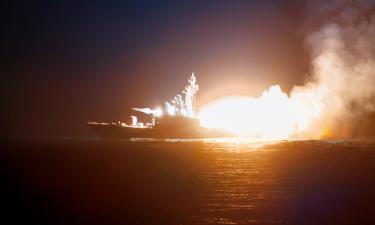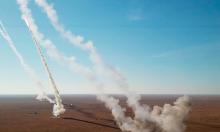Chirac sends troops to Lebanon gaining popularity
President of France Jacques Chirac improves his low rating by announcing his decision to send more French peacekeeping troops to Lebanon, AP reports.

The French leader, nearing the end of his 12-year presidential with low approval ratings, united France's bickering political classes and drew praise Thursday by committing 1,600 more troops to a U.N. force in Lebanon.
It was about time, observers said.
Chirac, 73, had come in for scathing criticism last week after initially offering just 200 more troops, in addition to the 200 French peacekeepers already part of the force - far short of expectations of a country with historical ties to Lebanon.
France left open the possibility of sending more, but the week-long hesitation cost precious time in an urgent situation - tempering the accolades for Chirac.
"In the end, France has maintained its standing and kept its promises," said Segolene Royal, a leading opposition Socialist politician and potential candidate for elections next spring. She said she regretted that the delay gave the impression that France was "wavering."
An editorial in the conservative Le Figaro daily said that Chirac had "put things back into their place" with the increased deployment.
The United States, which once vilified Chirac for his loud opposition to the Iraq war, hailed his bid to bring peace to part of a region where U.S. forces are largely unwelcome. Officials in the Middle East also praised the move.
"France's position, as Lebanon has always been used to, is on the side of what is right, and its support of Lebanon in all its causes," Lebanese Prime Minister Fuad Saniora said in a statement. Israeli diplomatic officials said they were satisfied.
French troops stepped in early in Lebanon with humanitarian aid missions and evacuations of foreigners after clashes broke out between Israeli troops and Hezbollah fighters July 12. France has had hundreds of forces off Lebanon's coast on naval vessels for weeks.
During the crisis, which consistently made headlines in French newspapers, Chirac's dismal approval ratings have climbed as he once again found his sweet spot - international affairs.
He spent most of the past year battling crises at home, including three weeks of riots this fall by youths in immigrant neighborhoods and massive street protests this spring over a labor reform. Pundits have largely written him off as a has-been, and he is not widely expected to stand for re-election.
Many countries have been waiting for France to make a strong commitment to the force before deciding how many troops to send.
In his nationally televised address Thursday, Chirac sought to claim some credit for drawing in other countries to the Lebanon force, saying that he had "spoken with several of my counterparts to convince them to take their full part."
Italy has said it would contribute up to 3,000 troops, and possibly take over the leadership role in the UNIFIL peacekeeping force.
One analyst suggested Chirac's decision would allow France to take credit for the mission, while reassuring its countrymen that other European nations would share its burdens and dangers.
"On the diplomatic front, France can say 'I keep the glory for myself,"' said political analyst Dominique Moisi. "But on the military front, France can say, 'Well, I spread the risk to Europe."
"The way I would describe it is a re-nationalization of glory, and a Europeanization of risks," he added.
Subscribe to Pravda.Ru Telegram channel, Facebook, RSS!




